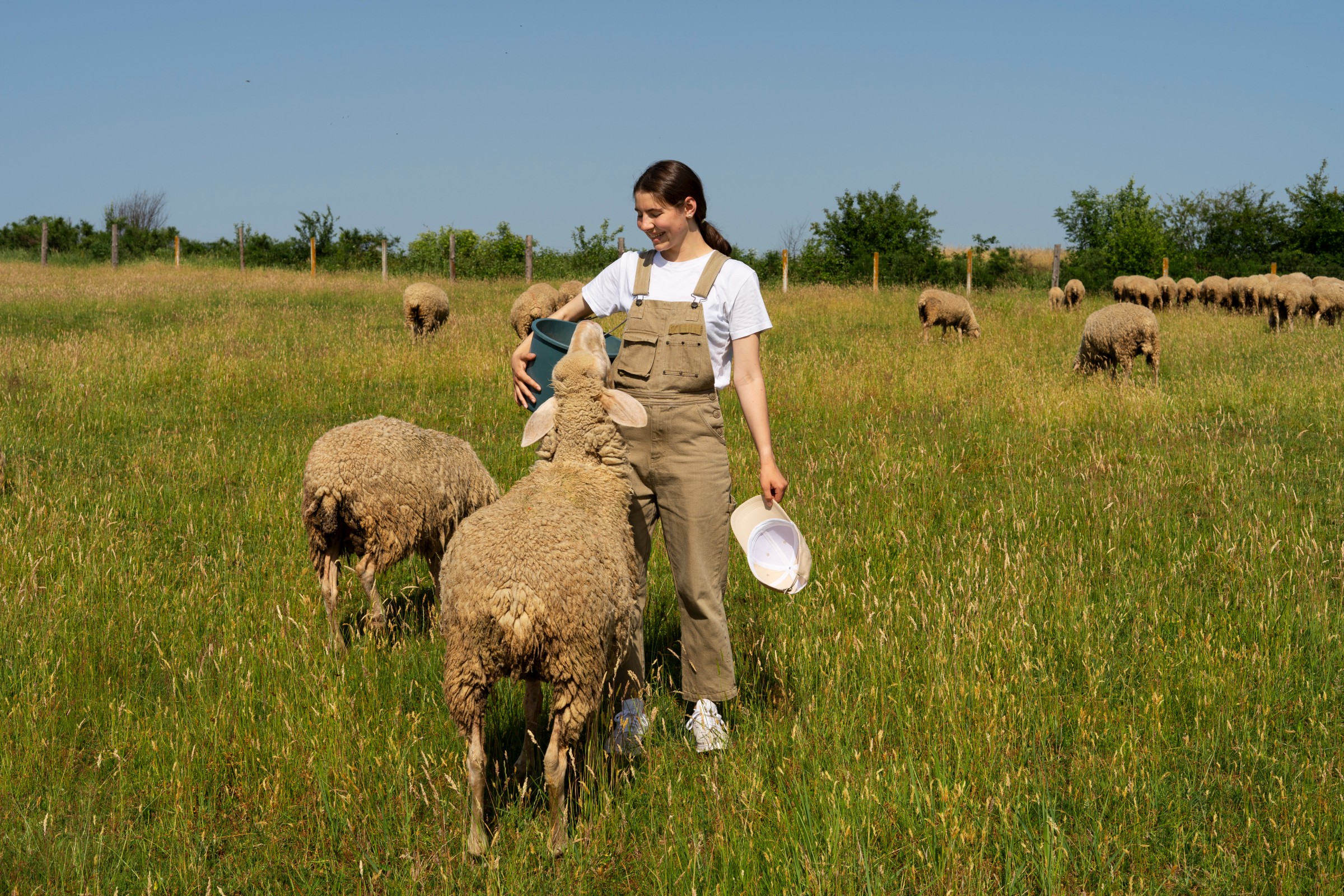Sustainable Livestock Farming: A Win for Farmers, Animals, and the Planet

For generations, livestock farming has been the cornerstone of agricultural communities, providing food, fiber, and income for millions of families. However, as environmental and ethical concerns rise, the traditional methods of livestock farming are increasingly being scrutinized. Farmers like Olivia, who raises cattle on her small ranch in the American Midwest, are seeking new ways to maintain productivity while minimizing environmental impact and improving animal welfare.
Sustainable livestock farming is a promising approach that not only ensures the long-term health of the land but also benefits farmers, animals, and the planet. By adopting environmentally conscious practices, reducing resource use, and ensuring the well-being of livestock, farmers like Olivia are leading the charge in transforming the livestock industry.
Livestock farming is one of the largest contributors to global greenhouse gas emissions, land degradation, and deforestation. Traditional methods, which rely on large-scale deforestation for pasture land, excessive water use, and inefficient feed conversion, are no longer viable in a world grappling with climate change.
Olivia knows this firsthand. Her ranch sits on arid land, and water scarcity has become a constant concern. Moreover, the cost of feed has risen steadily over the years, forcing her to explore more sustainable methods of raising her cattle.
Water Use—A Finite Resource
Livestock farming accounts for a significant portion of global freshwater use. In drought-prone areas, like where Olivia farms, sustainable water management is critical. She has invested in water-efficient systems and techniques, such as rotational grazing, to reduce water consumption while maintaining the health of her pasture.
Greenhouse Gas Emissions—Reducing the Carbon Hoofprint
Livestock, particularly cattle, are major contributors to methane emissions. By improving feed quality and implementing manure management systems, farmers like Olivia can reduce their farm's carbon footprint. One of the most innovative solutions to this problem is precision feeding, where livestock are fed tailored diets that minimize methane production.
Sustainability in livestock farming extends beyond the environment—it also involves ensuring the well-being of the animals. Olivia believes that happy, healthy animals produce better, more nutritious products, which is why she has adopted several humane and sustainable practices on her ranch.
Humane Treatment—A Growing Consumer Demand
Consumers are increasingly demanding ethically sourced meat and dairy products, and farmers like Olivia are responding by prioritizing animal welfare. She has invested in larger grazing areas for her cattle, ensuring they have room to roam and graze naturally. By allowing her cattle to graze freely, Olivia reduces their stress levels, which improves both their well-being and the quality of the meat they produce.
Veterinary Care—Preventing Rather Than Treating
Sustainable livestock farming also includes preventive veterinary care. Rather than waiting for illness to strike, Olivia regularly monitors her herd's health, using a combination of wearable health monitors and regular veterinary check-ups. This proactive approach reduces the need for antibiotics and other medical interventions, which can have negative effects on both the animals and the consumers of animal products.
Olivia’s ranch, like many others, has begun to embrace technology as a means of improving sustainability. From livestock tracking systems to precision feeding technology, the adoption of AgriTech is helping farmers like Olivia produce more with fewer resources.
Livestock Monitoring—Early Detection of Health Issues
By using wearable sensors, Olivia can track the health of her cattle in real-time. These sensors measure vital signs such as heart rate, temperature, and movement, alerting her to any potential health problems before they become serious. This reduces the need for costly treatments and ensures that her animals remain healthy throughout the year.
Sustainable Feeding Practices—Optimizing Inputs for Maximum Efficiency
Precision feeding technology allows Olivia to optimize her cattle’s diets based on their specific nutritional needs. This not only reduces waste but also improves the growth and productivity of the livestock. Feed costs, which were once a major concern, have dropped by 15% since implementing this system.
The shift to sustainable practices has transformed Olivia's ranch, and the benefits are clear. Her cattle are healthier, her costs have decreased, and her farm’s environmental footprint is significantly smaller. Moreover, her products now appeal to a growing market of eco-conscious consumers willing to pay a premium for sustainably sourced meat and dairy.
Economic Benefits—Reducing Costs and Increasing Profitability
Sustainability is not just about the environment—it’s also about profitability. By investing in water-saving technologies, precision feeding systems, and livestock health monitors, Olivia has reduced her operational costs. Her ranch is now more efficient, with lower feed, water, and veterinary costs. This efficiency translates into higher profit margins, even as she adopts more eco-friendly practices.
Meeting Consumer Demand—Ethical and Sustainable Products
As consumer demand for sustainable products continues to rise, farmers who embrace sustainable practices are finding new opportunities for growth. Olivia has started marketing her beef as "sustainably raised," and she has seen a significant increase in demand. By branding her products as both ethical and environmentally friendly, she is able to charge premium prices, attracting a more conscientious customer base.
Olivia’s ranch is a testament to the benefits of sustainable livestock farming. But for many farmers, transitioning to sustainable practices can be a daunting task. This is where platforms like AiDOOS come into play.
AiDOOS provides farmers with access to the expertise and technology they need to make the shift to sustainability. Whether it’s finding the right livestock monitoring systems, optimizing feed practices, or adopting water-saving technologies, AiDOOS connects farmers with the right solutions to improve both the sustainability and profitability of their operations.
Through AiDOOS, farmers can access expert consultants, veterinarians, and AgriTech professionals who can guide them through the process of adopting sustainable practices. By leveraging the AiDOOS platform, farmers can ensure they remain competitive in a world where sustainability is no longer an option—it’s a necessity.